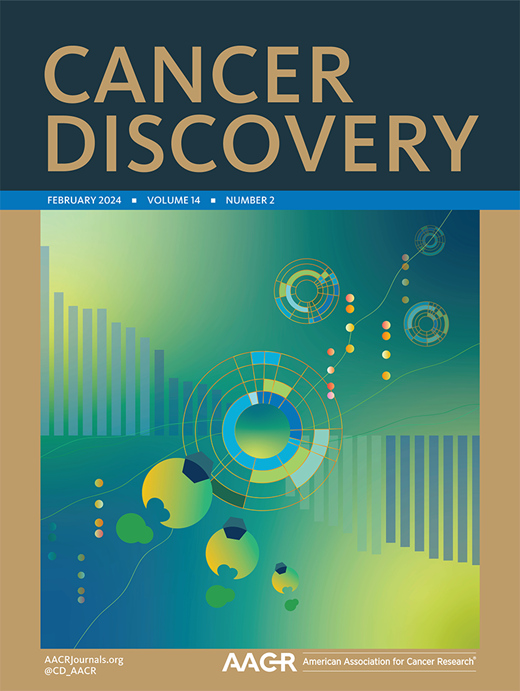T-cell dependency of tumor regressions and complete responses with RAS(ON) multi-selective inhibition in preclinical models of PDAC
IF 29.7
1区 医学
Q1 ONCOLOGY
引用次数: 0
Abstract
Activating mutations in KRAS drive tumorigenesis in pancreatic ductal adenocarcinoma (PDAC), promoting tumor cell proliferation and contributing to an immunosuppressive tumor microenvironment (TME) rendering PDAC tumors insensitive to immunotherapy. RAS(ON) multi-selective inhibitors, such as daraxonrasib (RMC-6236) and RMC-7977, target the active state of RAS, with potent anti-tumor activity in PDAC murine models. Here, we report that RAS(ON) multi-selective inhibition led to rapid and profound PDAC regressions in immunocompetent mice, decreasing myeloid cells and increasing T cells and macrophages in the TME. The depth and duration of tumor regression depended on T cells and conventional dendritic cells. Moreover, the combination of RAS(ON) multi-selective inhibitors with immunotherapy conferred deeper and more durable tumor regressions, including complete responses not seen with either treatment alone. In summary, concurrent inhibition of mutant and wild-type RAS is active in concert with T cell immunotherapy, revealing RAS(ON) multi-selective inhibitors as a potential therapeutic immuno-sensitizing strategy in PDAC.PDAC临床前模型中RAS(ON)多选择性抑制对肿瘤消退和完全缓解的t细胞依赖性
KRAS激活突变驱动胰腺导管腺癌(PDAC)的肿瘤发生,促进肿瘤细胞增殖,并促进免疫抑制肿瘤微环境(TME),使PDAC肿瘤对免疫治疗不敏感。RAS(ON)多选择性抑制剂,如daraxonrasib (rmmc -6236)和rmmc -7977,靶向RAS的活性状态,在PDAC小鼠模型中具有有效的抗肿瘤活性。在这里,我们报道RAS(ON)多选择性抑制导致免疫能力小鼠PDAC快速而深刻的衰退,减少骨髓细胞,增加TME中的T细胞和巨噬细胞。肿瘤消退的深度和持续时间取决于T细胞和常规树突状细胞。此外,RAS(ON)多选择性抑制剂与免疫治疗相结合,可使肿瘤消退更深、更持久,包括单独治疗所未见的完全缓解。综上所述,突变型和野生型RAS的同时抑制与T细胞免疫治疗相一致,表明RAS(ON)多选择性抑制剂是治疗PDAC的潜在免疫增敏策略。
本文章由计算机程序翻译,如有差异,请以英文原文为准。
求助全文
约1分钟内获得全文
求助全文
来源期刊

Cancer discovery
ONCOLOGY-
CiteScore
22.90
自引率
1.40%
发文量
838
审稿时长
6-12 weeks
期刊介绍:
Cancer Discovery publishes high-impact, peer-reviewed articles detailing significant advances in both research and clinical trials. Serving as a premier cancer information resource, the journal also features Review Articles, Perspectives, Commentaries, News stories, and Research Watch summaries to keep readers abreast of the latest findings in the field. Covering a wide range of topics, from laboratory research to clinical trials and epidemiologic studies, Cancer Discovery spans the entire spectrum of cancer research and medicine.
 求助内容:
求助内容: 应助结果提醒方式:
应助结果提醒方式:


